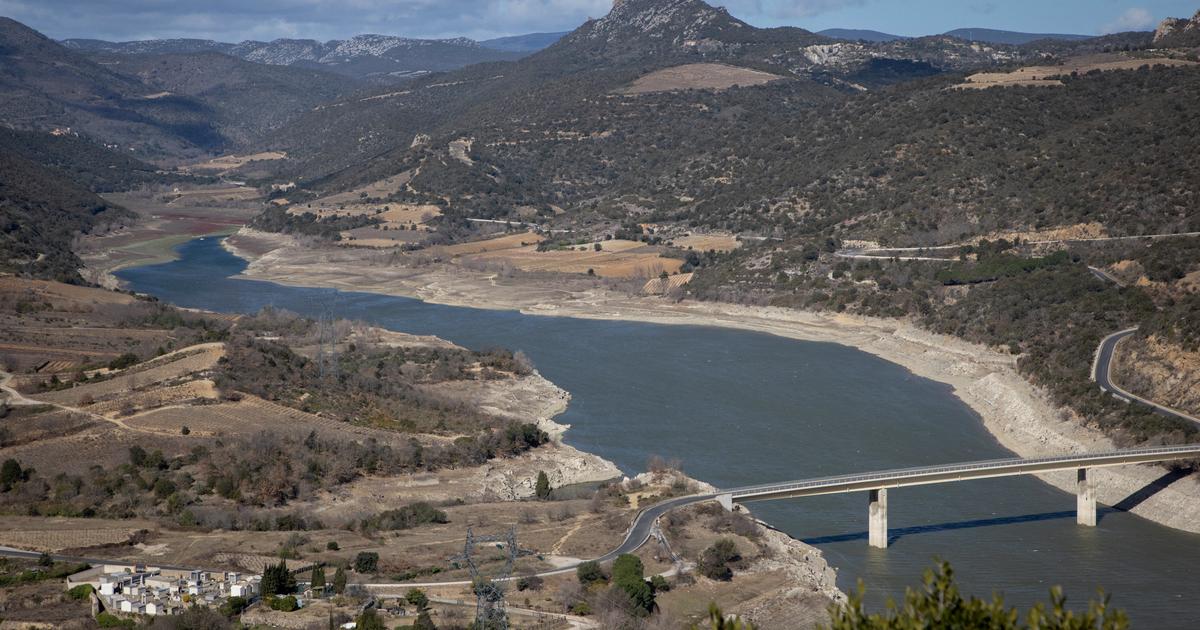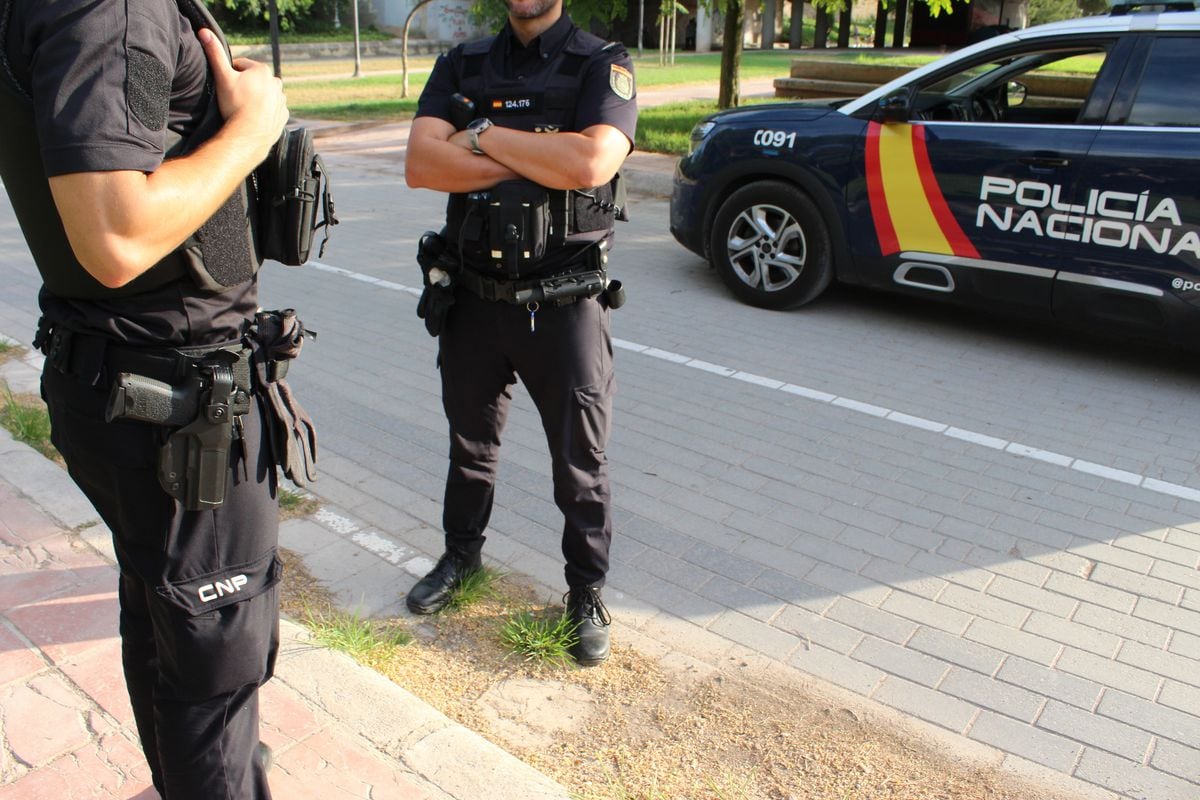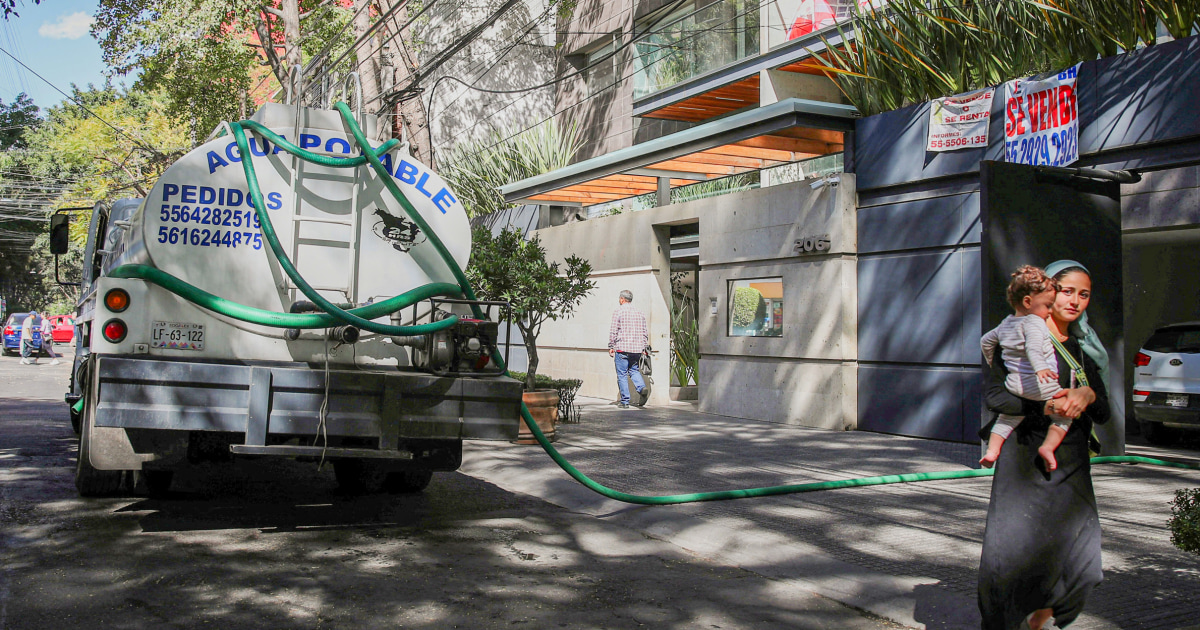Ismael, responsible for the aquifer and reservoir San Cristóbal de Villena.JOAQUIN DE HARO RODRIGUEZ
The municipality of Villena (Alicante, 33,969 inhabitants) has a treasure trove of gold pieces from the Bronze Age that is exhibited in its archaeological museum. Under its soil, there is another even greater treasure. A set of natural canals accumulates a huge mass of rainwater in four main wells, aquifers that for years have supplied irrigation and consumption in half the province of Alicante. Historical chronicles show that in the early twentieth century, 1,200 liters per second flowed the streets of Villena. In just 30 years, before the Civil War, they stopped flowing to the surface. In 1987 the overexploitation of the Villena and Crevillent aquifers was officially declared. Droughts such as the one now ravaging Spain force its protection, pending the implementation of the Júcar-Vinalopó transfer, to which the irrigators propose to join the use of desalinated and purified water to conserve aquifers for cases of extreme need. The mayor of Villena, Fulgencio Cerdán (PSOE), has just taken this matter to the European institutions. And the ecologist Fernando T. Maestre, an expert in desertification of the planet, proposes replacing crops to reduce water consumption.
Ángel Urbina, president of the Central Users Board (JCU) of Vinalopó, l'Alacantí and Consorcio de Aguas de la Marina Baixa, an entity attached to the CHJ and based in the town of Aspe that manages the water consumption of 1.5 million people and 65,000 hectares of irrigation, warns of the danger suffered by Alicante aquifers. "Given that some are in a very delicate situation due to overexploitation, it is time for us to turn them into a strategic reserve" to prevent future droughts, he says. Their strategy is to use all available resources. "Before the transfer, all the water came out of the Vinalopó wells," he explains, "now, the supply of the coastal municipalities can be subtracted thanks to the desalination plants, take advantage of the Júcar water for irrigation and join the work of the treatment plants. " Everything depends on the transfer of water from the Valencian river, "which was approved in 1998 unanimously by all parties," recalls Urbina. The agreement, which contemplated the use of water for irrigation and supply, is limited exclusively to agricultural use since a specific modification in 2005.
Wheat field affected by drought in Las Tiesas, in Villena.JOAQUIN DE HARO RODRIGUEZ
This transfer has been stopped for twenty years by a modification of its layout and by the high cost of pumping water in a slope of 800 meters, from the Azud de la Marquesa (Cullera) to the San Diego reservoir (Villena), says Urbina. "The final price of water, published last February, will be 24 cents per cubic meter for ten years," he continues. The amortization of this infrastructure, in which about 800 million euros have been invested since 1998, according to the calculations handled by the biologist of the JCU, Vicente Richart, is based on the fee paid for water in the public domain and the fees for the use of infrastructures, as stipulated by the Júcar Hydrographic Confederation (CHJ). From this year until 2032, and after a budget of the Ministry of Ecological Transition of 90 million euros for the photovoltaic plant that will pump the water, for five years "that price will be maintained and the rest will be borne by the State," says Urbina. Around 2028, "the Treasury will recover the money" through an agreement between Acuamed, the JCU and the ministry of Teresa Ribera "that is still to be signed".
Cerdán admits that in Villena there is "a certain anger" related to the exploitation of aquifers. "For more than a century, they have taken the water from Villena to enrich other areas," he denounces, "in which tourism has grown and the needs have been covered with wells, which suffer serious overexploitation and present certain levels of salinity." The transfer of water from the Júcar will alleviate the situation, in his opinion. "An agreement has been reached with the CHJ for the closure of the exploitation of wells, which will be exchanged for the use of water from the transfer," he alleges. The plan is to replace them in their entirety by 2027 by the transfer and use of the desalination plant of Mutxamel, a municipality near the provincial capital.
The mayor of Villenero met on April 26 in Brussels with MEP Clara Aguilar to articulate mechanisms for the protection of aquifers and water resources. But, over the last decades, in Villena "the irrigation network has been improved and rafts have been built" to support the main crops, which are fruit trees, cherry, apple, olive and vineyard. However, he insists that "now they force us to restrict and equalize the prices paid by our irrigators, who should obtain some kind of compensation", since, historically, he considers that they have been "supportive" and that their problems are the same. "The resource has been exploited for nothing, there has been no benefit for the city."
According to the JCU, the agricultural production of Vinalopó, which covers three regions in the interior of the province, focuses mainly on table grapes, some cereal (rainfed is the one that is most noticing the drought, especially fodder, wheat and barley) and horticultural products. In recent years, the cultivation of vegetables has grown. In some places the artichoke is replacing the onion, due to the difficulties of the Vega Baja, an eminently agricultural region belonging to the Segura basin. A model that, in Maestre's opinion, must change. The scientist, born in Sax, a municipality that also belongs to Vinalopó, agrees with the irrigators that "aquifers are like a piggy bank that should only be used in periods when it is needed" and that "you have to bring water from where there is it". "But no one is considering reducing consumption with other types of crops," he criticizes. "The climate of the future brings a lower availability of water and we cannot consider continuing to use it in the same amount."
Maestre urges to "encourage rainfed, change irrigation to products that need less water and intervene in the market to eliminate less surplus production." "In global terms, in Spain we throw away around 30% of the food we produce," he says. "Water management policy has been based on increasing water production, never on controlling demand," he continues. "We have to rationalize agriculture, order production," he says. In his opinion, the area dedicated to carob should increase, "whose fruit is being revalued and is used both in food, it is known as vegan chocolate, or cosmetics." It should also promote "the cultivation of aromatic plants, with many bioactive supplements and widely used in cosmetics and pharmacology", plantations that would direct efforts "towards quality and added value, not quantity". Finally, he indicates that "farmers should pay more attention to science, which researches and experiments with more drought-tolerant varieties, such as experimental crops in North Africa."
Subscribe to continue reading
Read without limits
Read more
I'm already a subscriber









